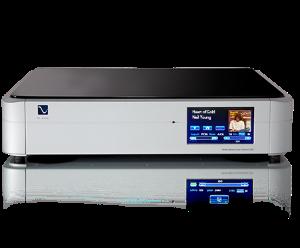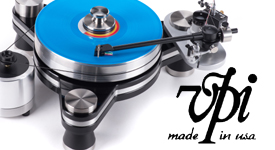New "Yale" OS upgrade lowers noise, distortion--at no cost to user
Boulder, CO 7/31/15-- PS Audio, manufacturer of fine audio components since 1973, is pleased to announce a new operating system for its revolutionary DirectStream DAC. The upgraded OS is called "Yale", after Mount Yale, one of Colorado's "Fourteeners" (the 53 mountain peaks in the state that rise above 14,000 feet). The practice of naming DirectStream's OS upgrades after a "Fourteener" began in February 2015 with the release of "Pikes Peak"
DirectStream was released over a year ago, based upon a design by software engineer Ted Smith, and perfected by Ted and the PS engineering team. DS differs from other DACs both structurally and operationally, as it up-samples and converts all inputs to DSD, reducing the amount of processing the signal undergoes, and shortening the signal path. Processing occurs within an FPGA (Field-Programmable Gate Array), rather than an off-the-shelf DAC chip. An FPGA offers a skilled designer the ability to precisely control the allocation of resources used during processing, avoiding issues of overheating and limited processing capability, often found in designs based upon ICs (Integrated Circuits). DirectStream's FPGA also allows for the operating system to be updated, ensuring that owners are assured of state of the art performance, for as long they own their DAC--at no additional cost.
Thus, our slogan for DirectStream: obsolescence is obsolete.
Since its launch last spring, there have been several major upgrades of DirectStream's operating system; each provided improved functionality, reliability and performance. The release of 1.2.1 in October, 2014 improved audible and measured performance to such a degree it was named Digital Product of the Year by both Stereophile and The Absolute Sound, and amassed a dozen awards from other authoritative magazines and sites."Pikes Peak",released in February, provided broader compatibility of sources, further reductions of jitter sensitivity and added proprietary resource management within the FPGA. Pikes' lower noise-floor revealed greater definition and air around instruments, as well as increased detail and separation within the soundstage.
"For Yale, I rewrote about half of the DSP code to take advantage of what we've learned about noise and jitter from the FPGA." said Ted Smith. " Noise is reduced even further, lowered by 3 dB, so the background is even blacker, images and ambience are even more distinct than with Pikes Peak-- and Pikes was already pretty amazing."
"In Music Room One, Yale is a revelation in the way it provides added spatial and low level information," said Paul McGowan, Founder and CEO of PS Audio. "Voices that once had noticeable reverb which seemed to come from nowhere, now have taken on a life of their own, and I can clearly identify the source of reverb as if it reflected from the room. Extraordinary levels of detail and added information and space become apparent with Yale."
"Yale Beta" has been available unofficially for several weeks; the further-improved "Yale Final" is available for download today from the PS Audio website here (scroll down to Yale OS), and will be included in all DirectStream DACs shipped after August 1.
About PS Audio: Founded in 1973, PS Audio has a worldwide following and a reputation for designing and manufacturing innovative, high-value, leading-end audio products. Our design and core manufacturing facilities are in Boulder, Colorado, at the foothills of the Rocky Mountains. While our engineering staff is second to none, PS is not constrained by NIH Syndrome: recent products have included design input from industry gurus Ted Smith and Bascom H. King.




































